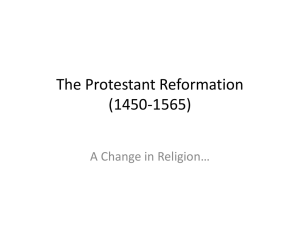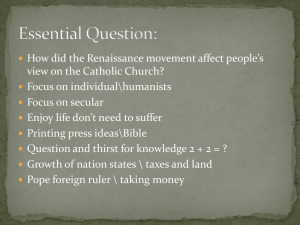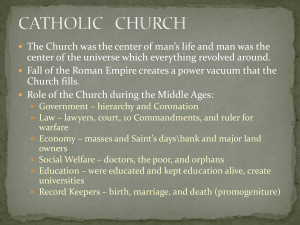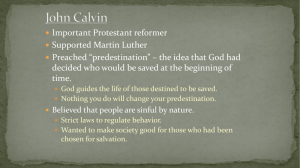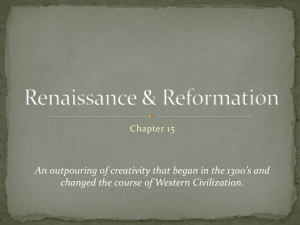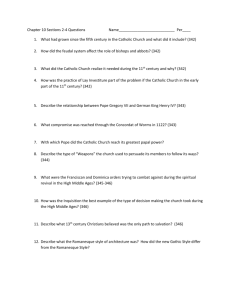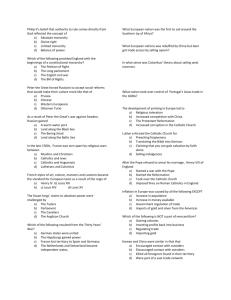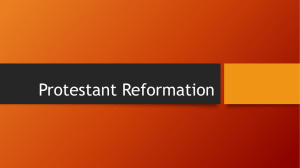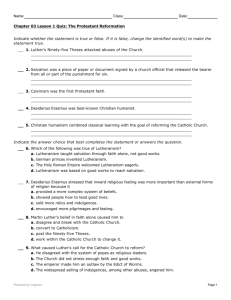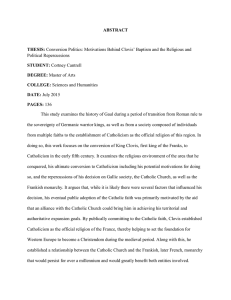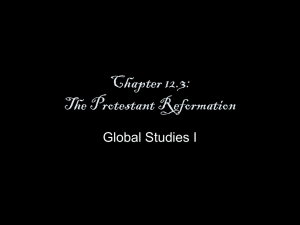Reformation Reading Comprehension Questions
advertisement
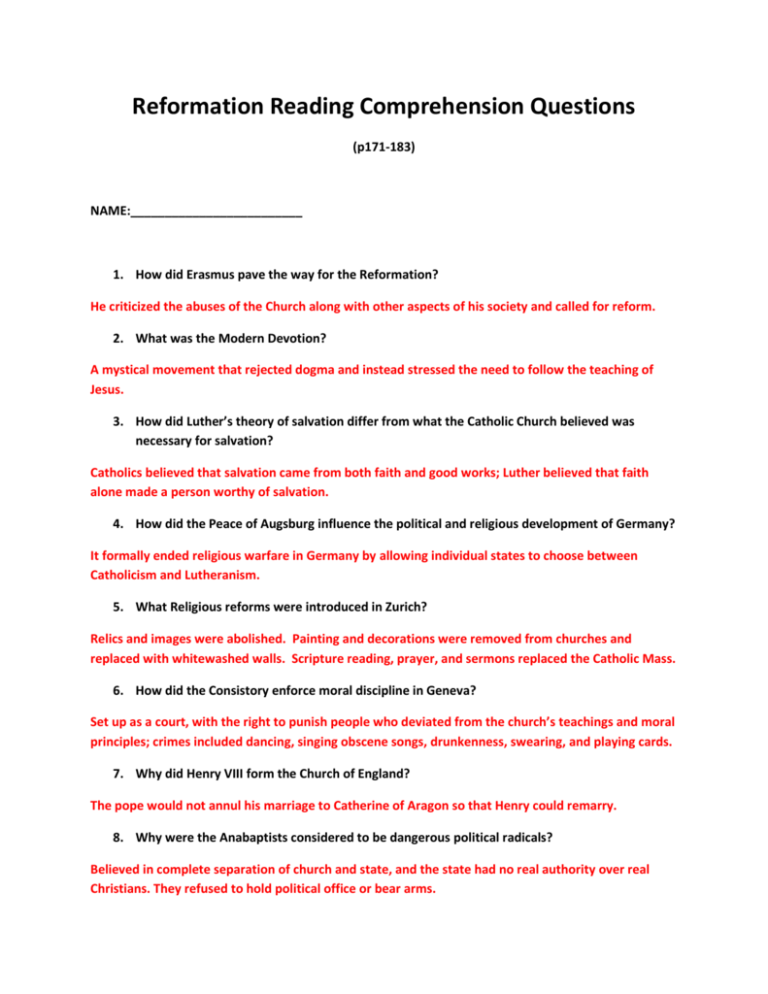
Reformation Reading Comprehension Questions (p171-183) NAME:_________________________ 1. How did Erasmus pave the way for the Reformation? He criticized the abuses of the Church along with other aspects of his society and called for reform. 2. What was the Modern Devotion? A mystical movement that rejected dogma and instead stressed the need to follow the teaching of Jesus. 3. How did Luther’s theory of salvation differ from what the Catholic Church believed was necessary for salvation? Catholics believed that salvation came from both faith and good works; Luther believed that faith alone made a person worthy of salvation. 4. How did the Peace of Augsburg influence the political and religious development of Germany? It formally ended religious warfare in Germany by allowing individual states to choose between Catholicism and Lutheranism. 5. What Religious reforms were introduced in Zurich? Relics and images were abolished. Painting and decorations were removed from churches and replaced with whitewashed walls. Scripture reading, prayer, and sermons replaced the Catholic Mass. 6. How did the Consistory enforce moral discipline in Geneva? Set up as a court, with the right to punish people who deviated from the church’s teachings and moral principles; crimes included dancing, singing obscene songs, drunkenness, swearing, and playing cards. 7. Why did Henry VIII form the Church of England? The pope would not annul his marriage to Catherine of Aragon so that Henry could remarry. 8. Why were the Anabaptists considered to be dangerous political radicals? Believed in complete separation of church and state, and the state had no real authority over real Christians. They refused to hold political office or bear arms. 9. What impact did the Protestant Reformation have on women? Greater emphasis put on family; wife was compelled to obey her husband and to bear children. 10. What was the relationship between the Jesuits and the pope? Jesuit took a special vow of absolute obedience to the pope, making them an important instrument for papal policy. 11. John Calvin emphasized _Predestination_, the belief that God chose who would be saved and who would be damned. 12. A remission after death, from all or part of the punishment due to sin is called an ___Indulgence___. 13. According to Erasmus, what should be the chief concerns of the Catholic church? To show people how to live lives on a daily basis rather than provide a system of beliefs that people have to practice to be saved. 14. How did Ignatius of Loyola help to reform Catholicism? By establishing the Society of Jesus, or Jesuits, a religious order that took a special vow of absolute obedience to the pope and used education to spread their message, restoring Catholicism to parts of Germany and eastern Europe and spreading it to other parts of the world. 15. Why did Martin Luther split with the Catholic Church? Identify the causes that led to the Protestant Reformation. His study of the Bible led him to believe that humans are saved through their faith in God alone, and that grace could not be earned by performing good works. This was at odds with the Catholic doctrine that salvation depended on faith and good works. He also attacked abuses in the sales of indulgences in his 95 theses. He attacked the church’s view of the sacraments, keeping only baptism and the Eucharist. He opposed celibacy of the clergy. Eventually he called on the German princes to break with Catholicism and establish a reformed German church. He was excommunicated by the pope and made an outlaw within the Holy Roman Empire by Charles V. His involvement turned into revolution and gained support of German rulers who broke with the Catholic Church.
